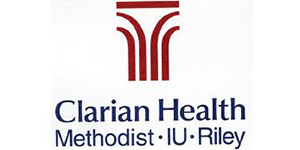
Respectful Conduct Clinic
The Intervention for Offenders
Myths vs. Reality
Myth: If we ignore him/her, the problems will resolve themselves.
Reality: They won’t stop themselves. Ignoring them is sufficient reward to sustain misconduct.
Myth: Toughness is simply management style. Managerial prerogative is tradition.
Reality: Employees want accountability. Gen Z, the workers of the future are intolerant of abuse. You won’t have a workforce soon.
Myth: The knee-jerk plan is to “change” the offender’s personality. Anger management.
Reality: Offenders could teach the seminar while laughing at its fecklessness.
Myth: They are A**holes, but they are “brilliant.”
Reality: Others are brilliant AND kind. They are not indispensable.
Myth: The organization is powerless to demand behavioral changes.
Reality: It’s time to meet the needs of the many instead of one person’s needs. And no one is going to change anyone’s personality.
Reclaim Your Power to Protect the Organization
You’re not as powerless as perpetrators try to make you feel. They won’t respond to your disciplinary threats, so it’s time to bring in the expert, Dr. Gary Namie, co-founder and director of Workplace Bullying Institute. He has spent decades consulting to organizations, teaching management, authoring studies, and serving as an expert witness in litigation cases. (See his credentials here.)
It’s time to hold the destructive offender accountable. Employees have been waiting for you to take responsible action. Introducing:
The Respectful Conduct Clinic Process
The proprietary Respectful Conduct Clinic (RCC) is designed to address high-profile, destructive aggressors in your organization.
Forget expensive attempts to change the offender’s personality. They don’t work. RCC is based on wisdom gleaned from 35+ years organizational consulting experience and 27 years as the originator of the workplace bullying consulting field.
RCC is a personalized, custom Intervention — part empathy, part confrontation, part prioritization of the organization’s needs over those of the offender. Over the course of 1.5 days spent with the offender via live, remote interaction, Dr. Gary Namie engages in the following activities: Assessment, Confrontation of Denial, Education, Coaching, and Re-Commitment to Organization Values. Skill deficiencies are identified and the myriad of barriers to adopting non-abusive practices. The offender’s continued employment is made contingent on a contracted personal development plan mandated by the supervising executive.
Prior to the sessions with the offender, individuals familiar with the behavioral tactics are interviewed to provide the evidence which offenders attempt to deny, the severity of inflicted harm is assessed, and filed complaints against the offender and all completed investigations are reviewed to reveal pattern and practice. The supervising executive provides explicit expectations regarding the offender’s post-RCC conduct. The preparation typically takes a half day or more.
The RCC process is a 2-day intervention that includes consultation with responsible executive and affected individuals.
For 6 months after the RCC, periodic unannounced evaluations of the offender’s behavior are conducted to ensure compliance with the contracted changes.
Outcomes
- Often new conditions of work emerge that reduce employer’s vicarious liability for misconduct by the offender.
- A modicum of accountability replaces impunity for harming others.
- Recipients of offender’s aggression get the psychological and psychosocial safety they deserve.
- RCC uncouples offenders’ unacceptable aggression from their “brilliance” previously used to justify their misconduct.
- By taking action, leadership boosts its credibility by addressing abusive conduct.
- Leaders learn they no longer need to be afraid to confront and constrain aggressive, subversive actors.
The RCC fee depends on the size of the organization and the rank of the offender in your organization — $10,000 – $35,000.
Call to inquire: 360.656.6630










Complete this short form and we will contact you to discuss your dilemma.

